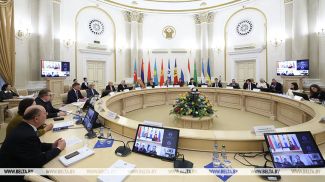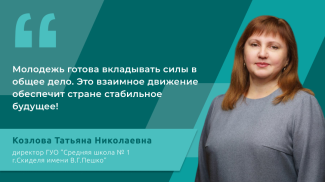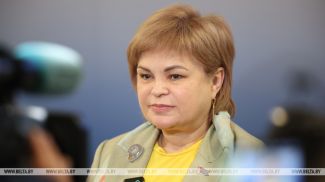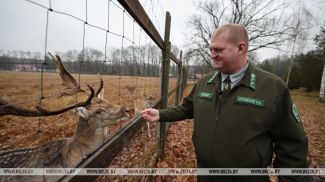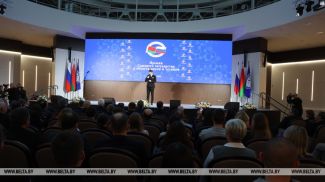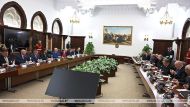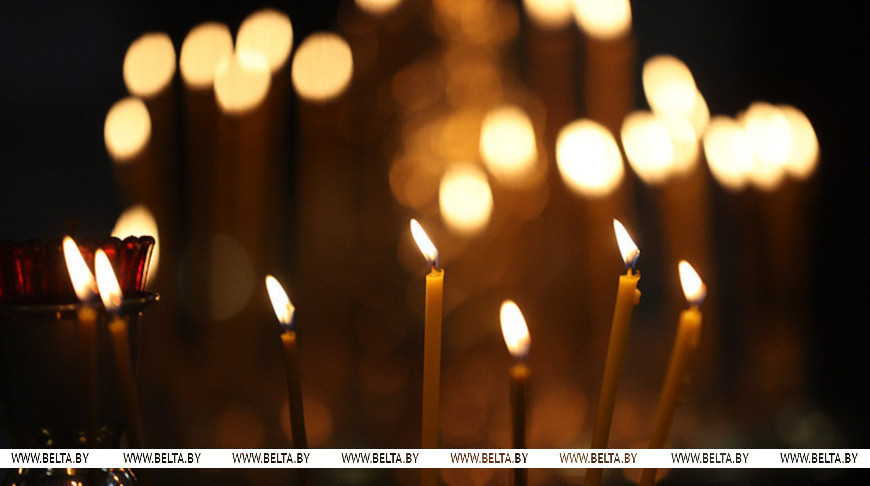
The law to ban the Ukrainian Orthodox Church (UOC) in Ukraine passed the final reading in the Verkhovna Rada of Ukraine this week. Kiev said that this law contributes to the "spiritual independence" of Ukraine. However, Moscow believes that in this way Kiev is destroying Orthodox Christianity on Ukrainian lands. The Moscow Patriarchate said that the repression of the UOC is happening amid the silence of world leaders.
Indeed, the main preachers of democracy and human rights - Joe Biden, Emmanuel Macron, Olaf Scholz - have not yet found anything to say about the oppression of the Ukrainian Orthodox Church. Instead, the situation was commented on by the Western media outlets. Most of them highlight political motivations and bypass, for some reason, the issues of religious freedom and human rights.
Let's start with the largest American news agency, the Associated Press. Its article about “the ban on Moscow-linked religious groups" was reprinted by smaller media in the United States.
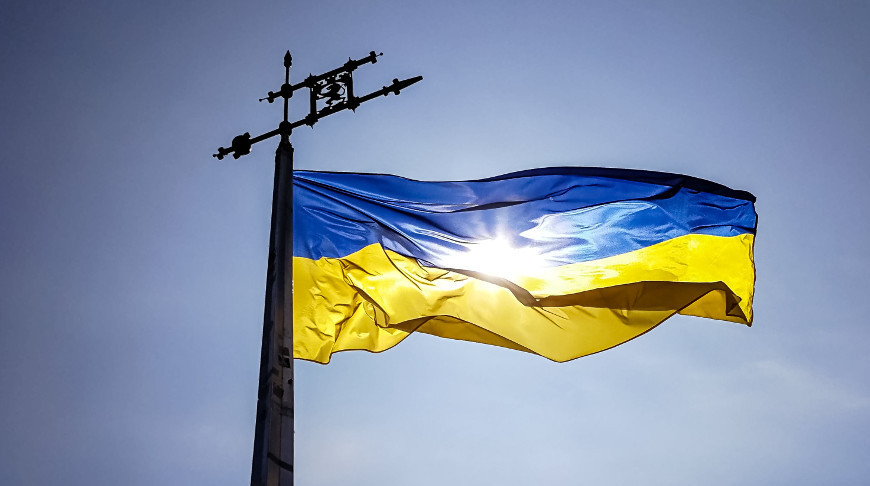
“Ukraine’s parliament has banned the activities of religious groups tied to the Russian Orthodox Church or any other faith group supporting Russia’s invasion," the Associated Press writes.
The article notes that earlier the Ukrainian Orthodox Church has proclaimed its loyalty to Ukraine. However, Kiev claims that the Ukrainian Orthodox Church remains canonically tied to the Russian church and its Moscow-based patriarch.
The Associated Press also notes that since the beginning of the Ukrainian conflict, “the Security Service of Ukraine initiated criminal proceedings against over 100 clerics of the Ukrainian Orthodox Church. Almost 50 of them have already been charged, and 26 have received court sentences.
The Associated Press cited a lawyer representing the Ukrainian Orthodox Church denounced the legislation as a “grotesque violation of religious freedom.” “It’s rare in law to find a bill so contemptuous of legal standards as this bill,” attorney Robert Amsterdam, whose firm is based in Washington and London, said in an interview. “We will go to every court we can. We will go to the United Nations.” Amsterdam called the measure “religious cleansing.”
The Associated Press itself does not ask questions about violations of religious freedom in Ukraine. It devotes part of the material to the topic of propaganda of the "Russian world" ideology. According to the AP, Ukrainians consider that concept as “ideological aggression” and noted that Kiev adopted Christianity in the 10th century and was “the region’s political and spiritual center long before the rise of Moscow”. The AP also noted that Moscow Patriarch Kirill “has portrayed the war as part of a metaphysical struggle against the West and gay pride parades.”
Reuters presents the material in the same vein. "Ukraine adopts 'historic' law to ban Russia-linked minority church," the headline reads.
To emphasize this "minority," Reuters cites the results of some public opinion poll that showed that about 82% of Ukrainians did not trust the UOC.
The article believes that Orthodox Christianity is split into two branches in Ukraine. The first branch is an independent Orthodox Church of Ukraine, “recognized by the world Orthodox hierarchy since 2019.” Apparently, it is a good one. The second branch is the Ukrainian Orthodox Church traditionally tied to the Russian Orthodox Church. Since it is tied to Russia, then, in the understanding of Reuters, it is apparently bad.
Reuters says: “Ukrainian leaders have accused the Moscow-linked UOC of abetting Russia's 30-month-old war on Ukraine by spreading pro-Russian propaganda and housing spies.”
Vladimir Zelensky hailed the vote as a step to strengthen Ukraine's "spiritual independence".
Lawmaker Irina Gerashchenko said it was the issue of national security. "Today we have embarked on the inevitable path of cleansing from within the Kremlin's agent network, which has been hiding behind the mask of a religious organization for decades," Reuters quotes Ukrainian lawmaker Roman Lozinsky as saying.
The French edition Le Monde emphasizes that the law against the Ukrainian Orthodox Church did not arise out of nowhere and the Ukrainian authorities have been moving towards this for several years. In other words, even before the start of the special military operation. “Kiev has been trying to curb spiritual ties with Russia for years," Le Monde writes.
The law adopted by the Rada, Le Monde notes, says that Kiev cuts religious, social and institutional ties with bodies it considers aligned with Moscow.
Euronews TV channel believes that the Ukrainian conflict has caused the Orthodox Church to split into two “camps.”
“The war has driven Orthodox Christians in Ukraine to choose between two camps: the Ukrainian Orthodox Church and the Orthodox Church of Ukraine,” the TV channel said.
The American conservative magazine National Review stands apart in its presentation of information about the oppression of the Ukrainian Orthodox Church. It is one of the few to point out that Kiev is violating religious freedom by trying to ban the Ukrainian Orthodox Church.
“The government of Ukraine should not decide which church is “legitimate” and which is not, which can operate openly and which should be suppressed,” the publication said in its piece.
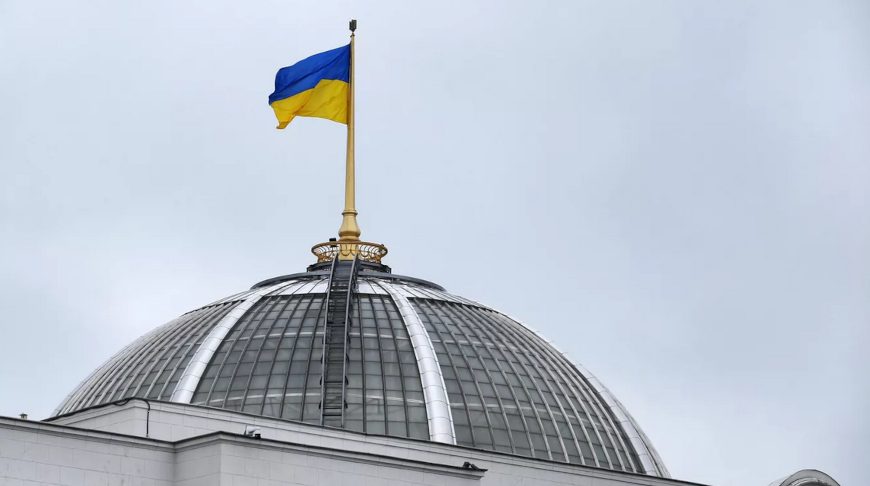
National Review considers Kiev’s actions a “grievous mistake”. “If there are members of the UOC who can be shown to be helping Russia, by all means, deal with those individuals legally. But banning a church and forcing it out of its monasteries and other religious institutions because it is part of the same overarching international religious institution as the state church of its enemy is not the act of a country dedicated to defending liberty,” the National Review writes.
The publication also notes that banning the Ukrainian Orthodox Church will not hurt Russia. But it will divide Ukrainians along religious lines and victimize innocent Christians.
Newsweek wrote that some conservative figures in the United States, including prominent journalist Tucker Carlson, had spoken out against the persecution of Christians in Ukraine.
After that, Carlson was criticized by the Orthodox Public Affairs Committee, which is based in the United States. The committee said that Carlson had little or no understanding of “the complexities of the religious reality of Ukraine” and “fomented more division with his nonsensical statements”.
An article published in The American Conservative will be a good choice to conclude our review of the Western press. The author of the article, Flavius Mihaies, visited Ukraine and saw with his own eyes what the Orthodox Church is facing on Ukrainian soil today.
The author begins with 2019, when the Orthodox Church of Ukraine (OCU) was founded in accordance with then President Petro Poroshenko's “one nation, one church” vision.
Poroshenko believed that an independent, national church was essential for national security, as opposed to the traditional UOC church, which was independent in governance but retained its legacy ecclesiastic connection with the Russian Orthodox Church based in Moscow. “One way that the OCU displayed its nationalism was by replacing Slavonic with Ukrainian as its liturgical language,” the journalist writes.
To get to the bottom of the situation, Mihaies’ investigation led him to both UOC and OCU parishes across Ukraine to conduct in-depth interviews with parishioners, religious leaders, civil activists, government officials, parliamentarians, journalists, soldiers, and everyday Ukrainian faithful.
“In the dozens and dozens of parishes I visited across Ukraine last December, a similar pattern emerged: UOC priests and parishioners were violently expelled from their churches and left defenseless in a forced transfer of parishes to the OCU,” the author writes.
He cites many examples when the Ukrainian authorities deprived believers of their churches. But people still gathered for worship - in stores, private houses, dilapidated buildings resembling barns, or simply in tents.
There were cases when parishioners tried to defend the churches. They stayed in the churches overnight to prevent the seizure. In such cases, "groups of people" came to the church and threatened the faithful gathered inside. Parishioners called the police, but the law enforcers supported the attackers. All this happened even before the beginning of the special military operation.

"On 30 May 2019, as a dozen parishioners were praying outside the church, individuals wearing masks invaded the church premises and began beating people for about 20 minutes and breaking items inside the church. A few parishioners were injured and went to the hospital,” Flavius Mihaies mentions a story heard from Orthodox parishioners in Zadubrivka village.
The journalist visited one of the churches of the UOC, which was seized and transferred to the OCU. "A handful of faithful were inside, compared with the tightly packed private house where the dispossessed [the UOC parishioners deprived of a church] had gathered. A large Ukrainian flag was flying on the top of the church," he notes.
Residents of Malyi Kuchuriv village shared their terrible memories with the journalist. The villagers built the church entirely by their own hands, but in March 2023 it was expropriated and transferred to the OCU. There was a real seizure. The villagers took a lot of videos and photos of what was happening. "Parishioners were beaten, including with iron pipes. In one photo, a man could be seen standing in the church premises wrapped in an Ukrainian flag. Another photo showed the detached part of a finger in a pool of blood. Father Petro, who was the parish’s head priest for 14 years, also showed me videos of the event. He said the group who seized the church did not belong to the parish and came with local authorities and police, saying, “Force is on our side.” A bloody fight ensued, with children and elderly people beaten while police stood by and watched. The entire parish was then forced outside, the church doors were locked, and religious and personal items were taken away, including the priest’s personal belongings,” Flavius Mihaies writes.
The protection of the courts can't be counted on. “When a parish sought legal recourse for church seizures, acts of violence, or other abuses, court cases were dismissed, delayed, ignored, or closed, or the illegal re-registration of the parish was validated," the journalist notes.
However, the authorities put pressure not only on the UOC and clergy, but also on common parishioners. Military officers often come to church services to hand out summonses to be recruited to the army. People say that recruitment for military service is now selective.
Flavius Mihaies notes that the facts of human rights and religious freedom violations in Ukraine are noted by UN experts. They conduct investigations, document violations, and publish reports. "Reading through some of the reports their investigations produced, I recognized many findings similar to my own," the journalist says.
However, this does not influence the situation in any way. "During our interview in Ruzhychna, Archpriest Volodymyr mentioned that two years ago he had received a visit from UN experts, whom he told about his parish’s fate. Two years later, he was still leading the Ascension of the Mother of God parish under tarps," the journalist notes.
Dozens of Western media have written about Ukraine's "spiritual independence". But Flavius Mihaies' article gets to the bottom of the heart. That is the power of truth. Let's thank him for his honesty and courage, which are such rare qualities for Western journalists and leaders. And more. If people, despite the need and persecution, come together to pray under tarps, there are hope and future.




